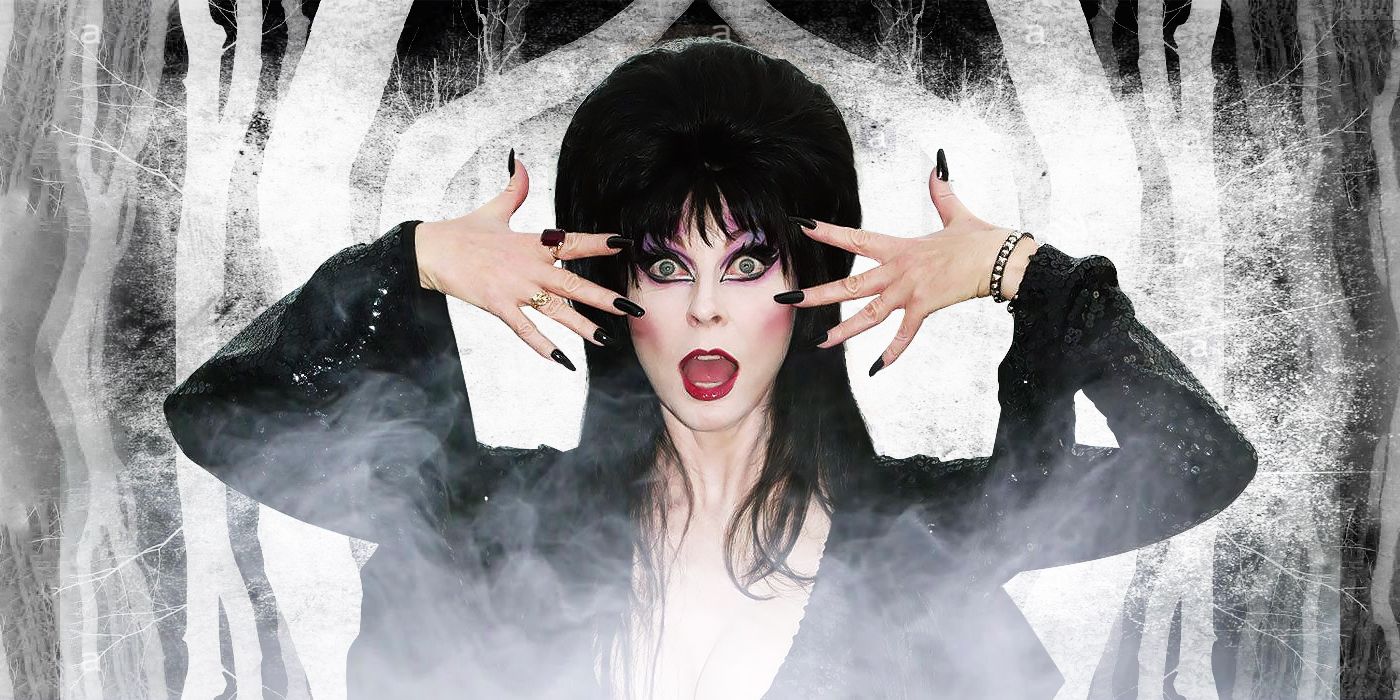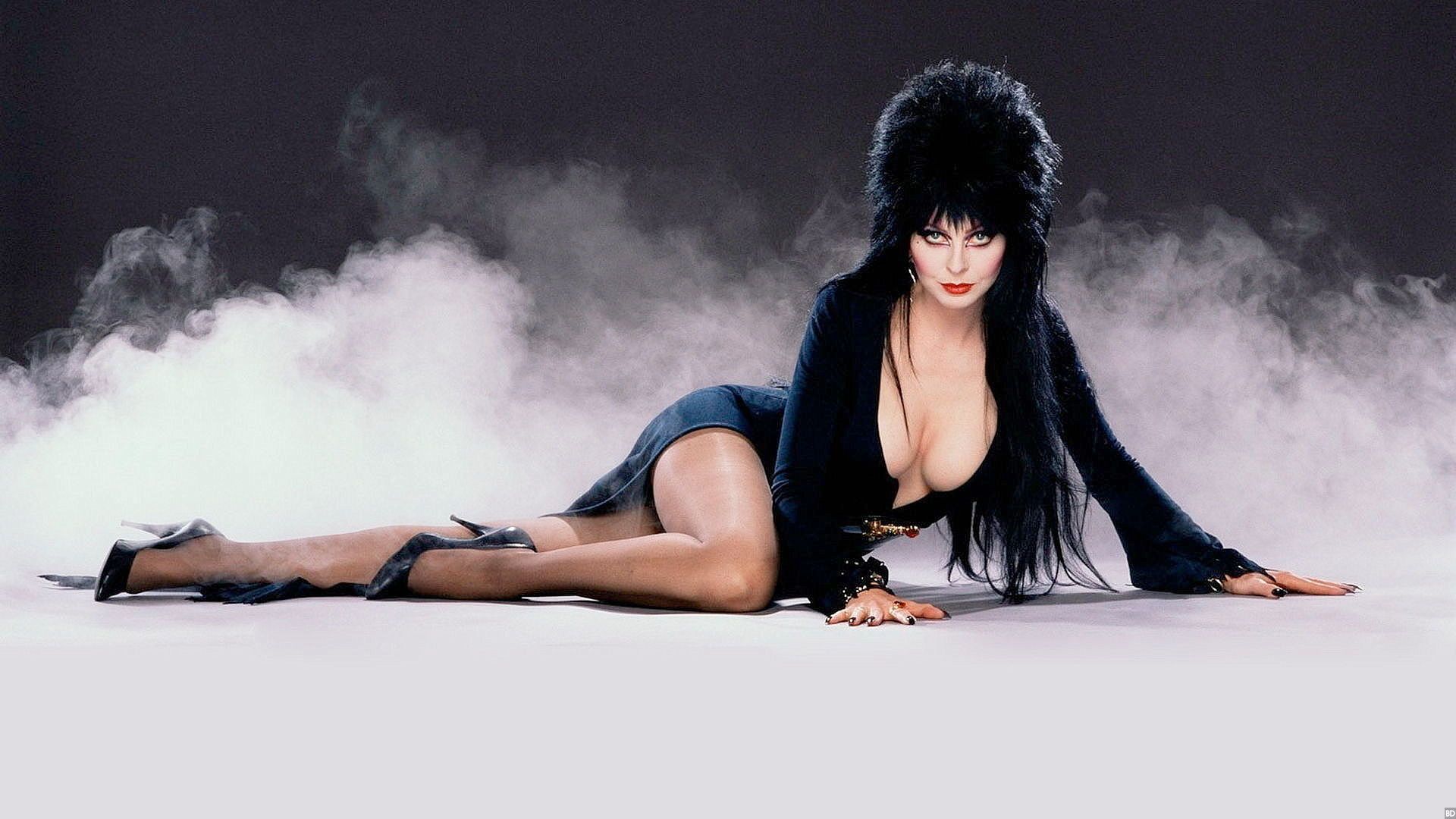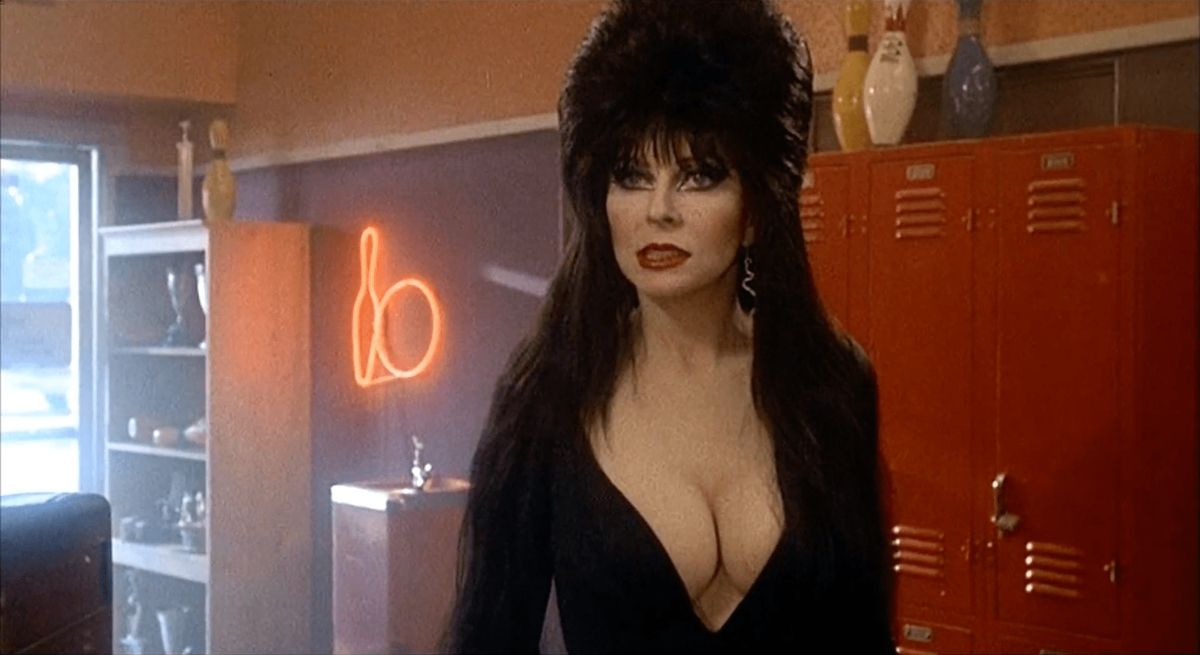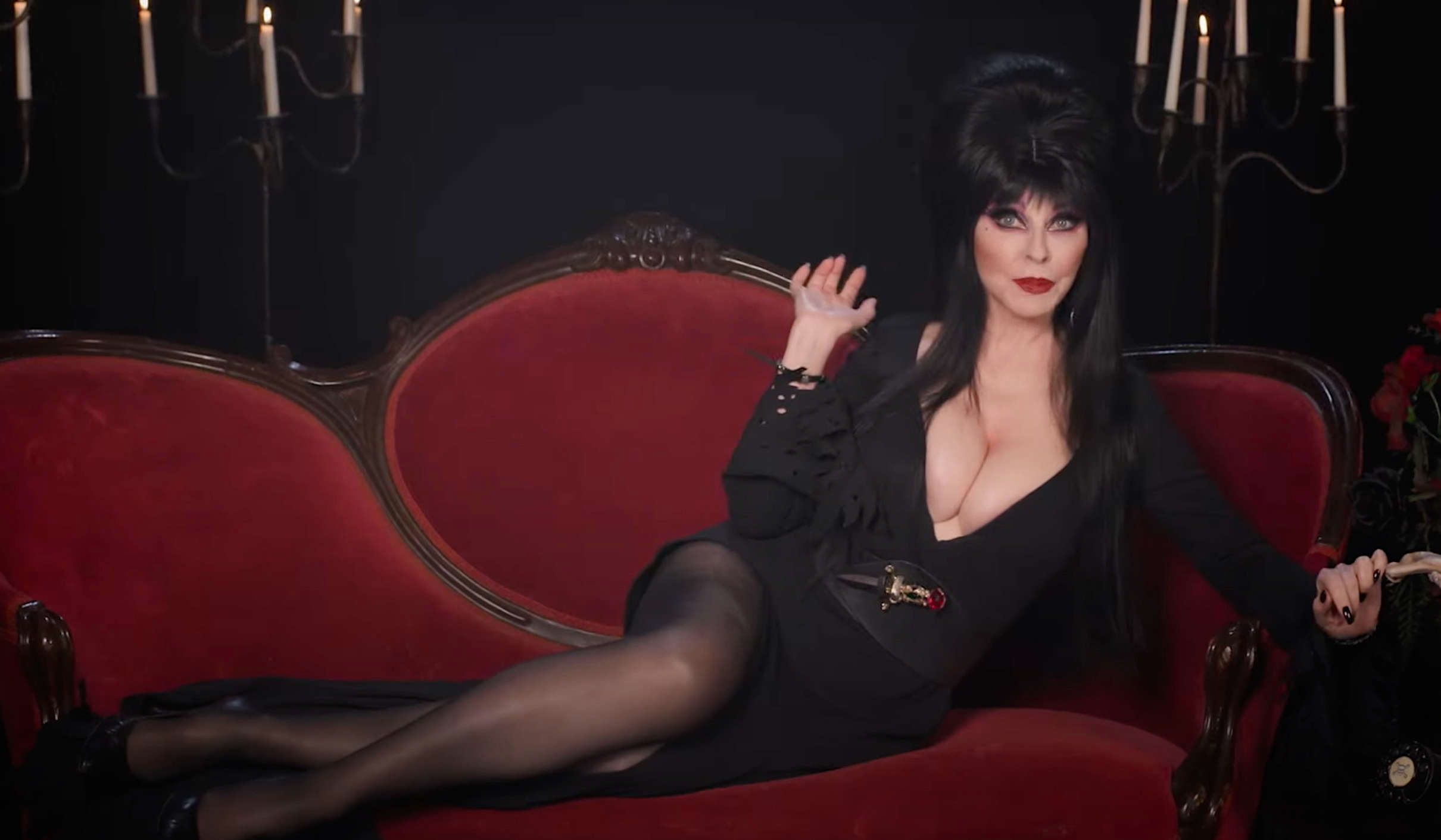From Freddy Krueger to Chucky, Ghostface to Jigsaw, and everyone in between, the horror landscape is packed with iconic characters that have stood the test of time by continuing to assert their dominance on the genre. Whether through film sequels, remakes, TV series, or being immortalized in a dizzying array of Halloween costumes each year, they remain part of the pop culture conversation years and decades after they were first let loose on unsuspecting audiences. But despite the many, many men and monsters who keep their claws hooked into the genre, there's one woman who has endured as a horror icon like no other: Elvira.
With her signature black dress, exposed cleavage, "knowledge bump" hairstyle, and heavily made-up face, Elvira (played by Cassandra Peterson) was introduced to audiences in 1981 as the television host of Elvira's Movie Macabre. The weekly show featured Elvira introducing old horror and science-fiction B movies and occasionally interrupting the feature with jokes and comedic asides and observations ("I think she has somethin' up her sleeve...and I ain't talkin' about varicose veins," she quips about a suspicious character in an episode featuring House of Dark Shadows). But while other horror characters have diminished in popularity after having their brief moment in the sun, Elvira continues to endure. (Look no further than her triumphant debut on Shudder 40 years after the premiere of Elvira's Movie Macabre.)
What's unique about Elvira is that she's the ultimate contradiction. Her black clothes and pale make-up give her an intimidating goth punk presence while her self-deprecating humor and valley girl dialect cement her as a relatable "cool girl." She's someone who at first surprises viewers with her appearance before putting them at ease with her sarcasm, jokes, and comedic asides filled with more than a few sexual innuendos. Here, she challenges audiences' expectations by demonstrating that looks are often deceiving and reaffirming the old adage that you should never judge a book by its cover. Because Elvira isn't the stereotypical "goth girl" or "straight man" whose only purpose is to elevate the jokes and witticisms of the chauvinistic characters around her. Instead, she's a sarcastic, empowered character who takes control of the narrative and jokes surrounding her sex and appearance especially in films like Elvira: Mistress of the Dark and Elvira’s Haunted Hills. "If they ever ask about me, tell them I was more than just a great set of boobs," she says self-deprecatingly. Or after a woman comments that Elvira's dress is too tight, "Listen, sister. If I want your opinion, I'll beat it out of you." Elvira is quick to intuit others' responses to her unconventional appearance. By being the one to initiate the jokes and insults surrounding it, she pokes fun at herself rather than allowing herself to be the butt of the joke.
Elvira is never a damsel in distress and takes it upon herself to get out of danger (such as in Elvira: Mistress of the Dark when she escapes being burned at the stake and single-handedly banishes the film's villain to the underworld), making her a strong character and positive role model for independence and self-sufficiency no matter the time period. But even more impressively, Elvira was ahead of the curve in terms of bridging the gap between horror and comedy. While campy horror films existed years before, Elvira arguably perfected the science. “The village people say the castle is evil,” Lord Hellsubus (Richard O'Brien) says in Elvira's Haunted Hills to which Elvira quips, “Eh, who listens to the Village People anymore?” Elvira's Haunted Hills was a spoof of old Hammer films and Edgar Allan Poe adaptations, which is evident in parodying moments like the film's climax that sees Elvira tied beneath a pendulum like in The Pit and the Pendulum, or Elvira's castle sinking into a giant void like in House of Usher. For some viewers, the blending of comedy and horror can be difficult, but Elvira (and Cassandra Peterson) forged ahead with spoofing, deconstructing, and commentating on current horror trends decades prior to recent horror-comedy successes like Happy Death Day, The Cabin in the Woods, and The Final Girls.
Elvira's keen eye and meta-awareness of the horror genre also cements her place in pop culture. When the castle splits in half in Elvira's Haunted Hills, she makes a comment about, “afford[ing] such a crappy effect," while she slaps a dramatically moaning Lord Hellsubus before shouting, “Snap out of it! What are you goin’ for, an Oscar?” Without moments like these that show that self-aware horror-comedies could be done successfully, it's safe to say that there might not have been Randy's "rules...to successfully survive a horror movie" monologue in Scream or the deconstruction of (and self-awareness in relation to) zombie stereotypes in Zombieland. Elvira paved the way. Now, more people “get” horror-comedies (and they’re more popular), attracting more people to Elvira and her brand. While the horror landscape has changed, Elvira herself hasn’t. She’s remained true to herself for 40-plus years while the way that people view horror has evolved to fit what she was always doing rather than the other way around.
As times change (especially these past few crazy years), Elvira remains a constant, comforting (and seemingly ageless) presence. Her very existence in 2021 lets us know that she'll always be there to grant us the gift of nostalgia for the 80s and 90s when she was introduced, as well as serving as an ambassador for silly-smart comedy. In her own horror-centric way, Elvira is like a therapist, and listening to her tell jokes and regale us with cheeky innuendos while perched upon her red velvet couch is the perfect, timeless antidote to whatever difficult things we might be going through as individuals or a society.
40 years after her debut, Elvira is arguably more popular than ever with new specials on Shudder, Netflix, and a recently released memoir. Her character's consistency over the past four decades in sharp humor and style prove that she doesn't need to reinvent herself to adapt to current trends to be successful. Elvira is as timeless as she is effortlessly cool. She has no filter and is quick-witted in a way that we wish we could be in the moment. To this end, she allows us to use her as a proxy, to live vicariously through her, to do and say the (sometimes inappropriate) things we never would dream of doing or saying in public. Time moves on but Elvira stays the same, continuing to remain part of the pop culture conversation...and reign supreme as horror's favorite Mistress of the Dark.




